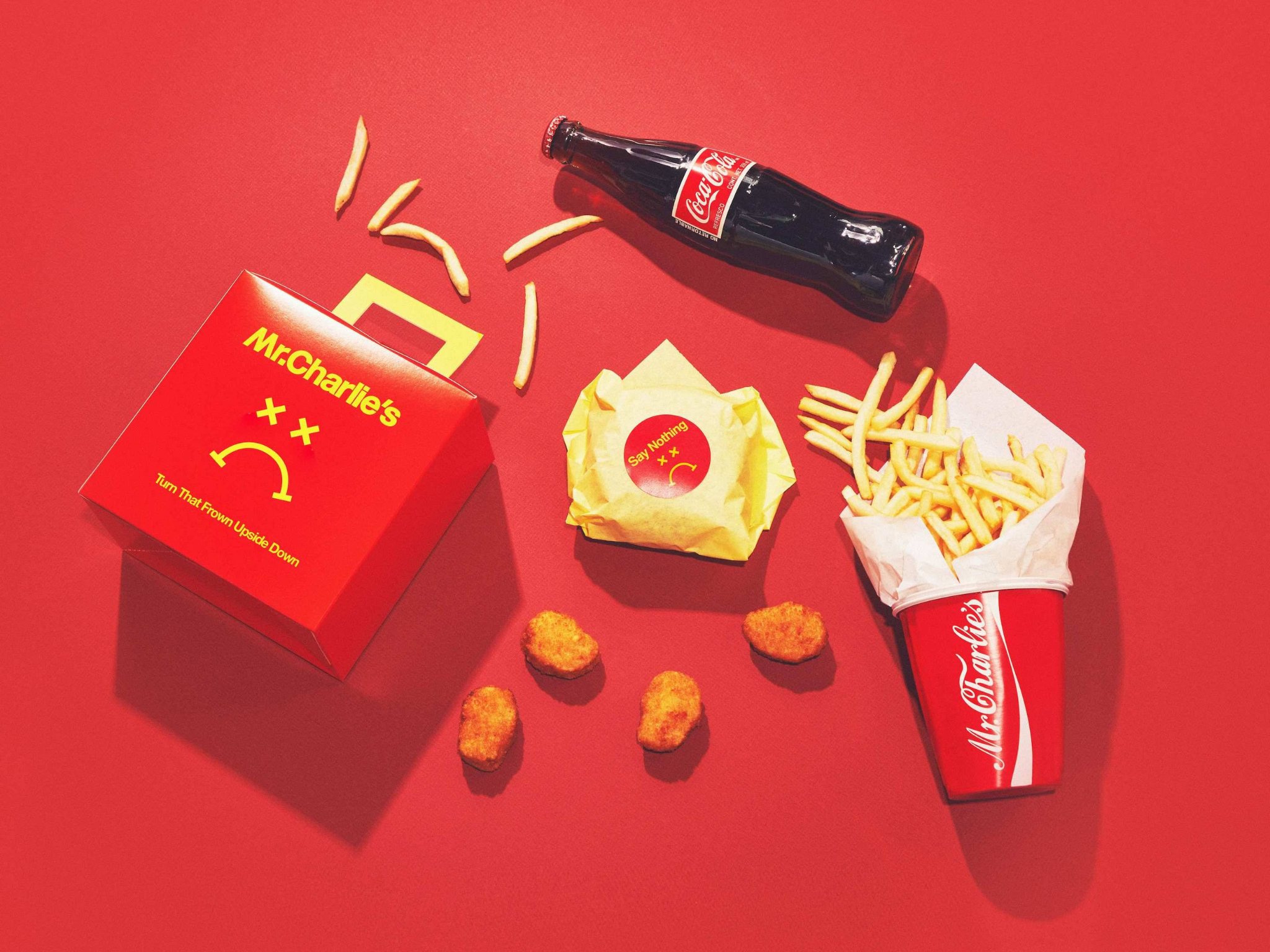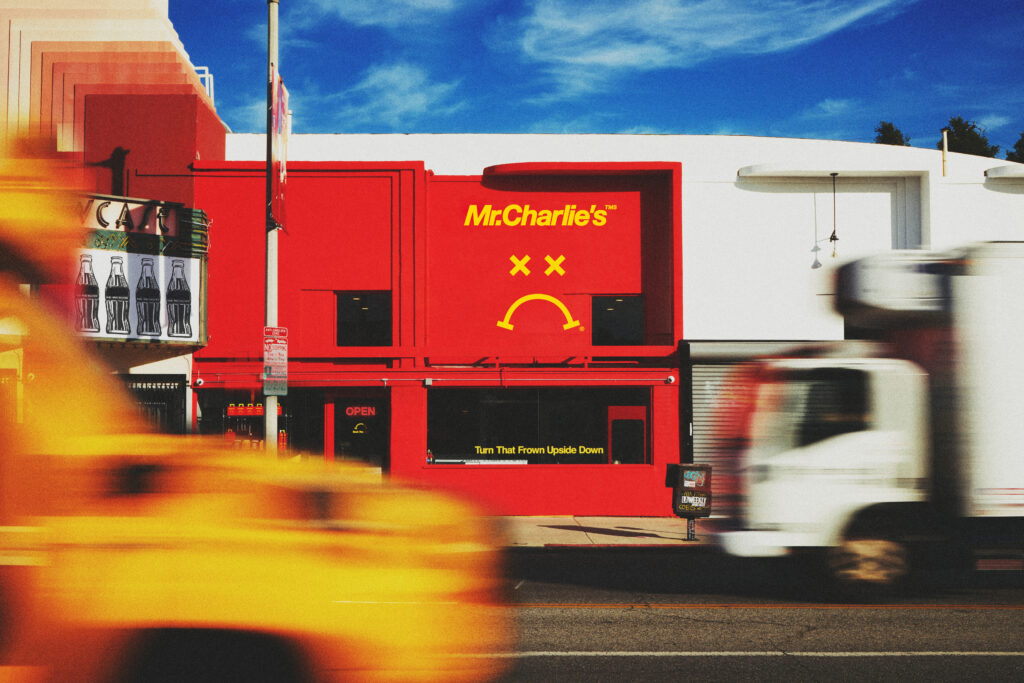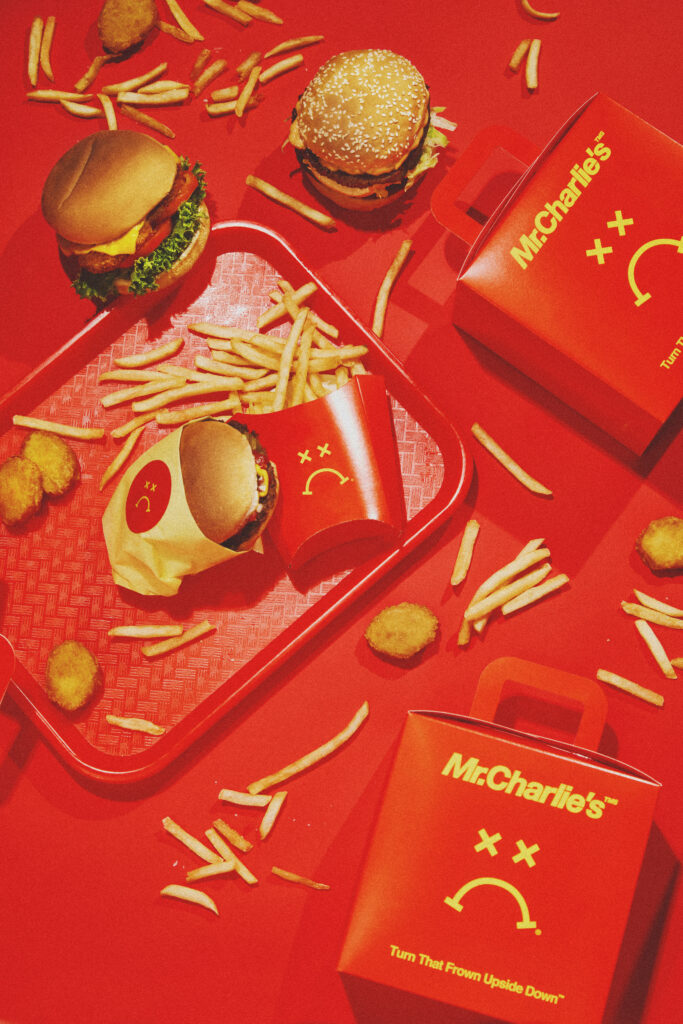
Backed by the likes of Mike Tyson and Future, vegan fast-food chain Mr Charlie’s is opening 18 locations in Arizona, despite widespread restaurant closures in the US. Here’s why.
It’s never been easy to own a hospitality business; for today’s F&B operators though, it can feel like the deck is stacked against them.
The traditionally thin margins of the restaurant industry are being met with rising ingredient, utility, rental and labour costs, thanks to the climate crisis, geopolitical tensions, and the tariff war. Concurrently, consumers are spending less on dining out or takeaway, and the Ozempic boom has also played a part.
The situation has arguably been even bleaker for meat-free restaurants, as beef became popular again in 2024 and meat sales reached record highs, spurred by the MAGA and MAHA movements, a disdain for ultra-processed foods (UPFs), and manosphere influencers like Liver King.
It wasn’t just supermarket shoppers buying fewer meat analogues last year – in the foodservice sector, sales of plant-based proteins fell by 5% too.
This landscape has led to the demise of several restaurants and chains around the country, including Matthew Kenney’s VEG’D, Kevin Hart’s Hart House, and Baia in California, Plum Bistro in Seattle, and Organic Village in New York. Just this week, popular vegan sushi chain Planta filed for Chapter 11 bankruptcy. And Canada’s Odd Burger recently thwarted its US expansion plans due to the tariff war.
Others have added meat to the menu in the hopes of winning more customers, such as Hot Tongue Pizza, Elf Cafe, Burgerlords, Margo’s, and Sage Regenerative Kitchen – the latter wound down earlier this year.
So it’s hardly an exaggeration that plant-based restaurants are in dire straits right now.
One chain – dubbed as a ‘vegan McDonald’s’ – believes it can be an outlier. With three locations in California and Sydney, Australia, Mr Charlie’s Told Me So (known as Mr Charlie’s) has signed a deal to open 18 new stores in Arizona.
The first outlets will be opened in Scottsdale later this year. “We’ve identified our target sites and are currently finalising the details. We’re excited to bring Mr. Charlie’s to a vibrant community that aligns with our ethos and demand for plant-based innovation,” Mr Charlie’s co-founder Taylor McKinnon tells Green Queen.

Why Mr Charlie’s chose Arizona
McKinnon founded Mr Charlie’s with Aaron Haxton in 2020, and the restaurant quickly found TikTok-fame thanks to its McDonald’s-spoofing branding: menu items include Not A Cheeseburger, Mr Muffin, and a Frowny Meal, while its packaging features red boxes with a yellow sad face, a wink-wink ‘unhappy’ brand aesthetic.
The chain teased its expansion last October, developing a franchise model targeting area developers and master franchisees in large US territories, and leveraging data from Uber Eats and Postmates to pinpoint the most well-suited locations and enable faster rollouts.
In Arizona, area developer Patrick Lam, president of Access Capital Group, has become Mr Charlie’s first franchisee. “These restaurants will be hubs of community, second chances, and delicious food,” he said, a nod to Mr Charlie’s commitment to providing opportunities to employees from underprivileged backgrounds, including those overcoming addiction or homelessness.
But what makes Arizona more attractive than other states, like New York or Massachusetts? For McKinnon, the Grand Canyon State “represents a unique intersection of economic growth, [a] favourable business climate, and a rapidly evolving food scene”.
“Scottsdale, in particular, has become a hub for innovation and lifestyle-driven concepts, making it a natural fit for Mr Charlie’s mission,” he says. “Compared to states like Massachusetts, Arizona offers a consumer base eager for fresh, health-conscious alternatives – especially in fast casual. It’s the right energy, the right time, and the right audience.”

That said, the restaurant chain now has a licence to franchise in 38 states and territories (pending final approval of its disclosure document in California and New York). To help manage this model, it has hired Adam Wilks as president.
Wilks is the former CEO of Carma HoldCo, the parent company of the sports and wellness brands of Mike Tyson, Ric Flair, and Future. Carma HoldCo made an investment in Mr Charlie’s in October as part of a strategic round that “significantly contributed” to its expansion plans.
“The Scottsdale launch and several franchise support initiatives are fully funded by our previous round,” says McKinnon, adding: “While we remain open to future capital infusions, current plans are adequately resourced through existing funds and ongoing operational revenue.”
Expansion ‘not a risk, but a response to demand’

The decision to expand came on the back of a “strong year [of] strategic growth” for Mr Charlie’s. “In the US, our flagship locations saw continued year-over-year increases, bolstered by brand loyalty and an uptick in foot traffic across core markets,” explains McKinnon.
“In Australia, our Sydney location exceeded projections and served as a powerful proof of concept for global scalability. Overall, revenue was up across both regions, and margins improved due to refined supply chains and better unit economics.”
He feels the decline in plant-based sales is less about a lack of demand, and more about a desire for better quality and clearer value. “The category grew too fast, and many products didn’t meet consumer expectations,” he suggests.
“At Mr Charlie’s, we focus on taste, experience, and familiarity, not just on being ‘plant-based’. We offer indulgent, comforting food that just happens to be vegan. That positioning resonates beyond diet choices and speaks to a broader cultural movement around conscious consumption.”
This is where some of Mr Charlie’s peers faltered. “Many vegan concepts failed by targeting too narrow an audience or failing to differentiate themselves. Mr Charlie’s has always positioned itself as a lifestyle brand, not just a vegan food spot.
“Our confidence is rooted in real consumer engagement and data, our foot traffic, return customers, and online buzz prove that our model connects. Expansion isn’t a risk, it’s a response to demand.”
The UPF question and importance of customer loyalty

One of the main talking points around plant-based food – particularly meat and dairy alternatives – is their health impact. Nearly four in five Americans would like to eat healthier this year, and half of them feel plant-based foods are better for them than animal proteins. At the same time, 45% want to eat less meat and dairy due to personal health concerns.
However, these products also suffer from a negative perception due to their links with ultra-processing and their long ingredient lists, and vast misinformation campaigns funded by the meat industry don’t help their cause. Leaders like Beyond Meat have repeatedly stated how confusion about the category has affected their bottom lines.
Mr Charlie’s uses plant-based burgers from Impossible Foods, chicken nuggets and patties from TiNDLE Foods, and vegan cheese from Stockeld Dreamery, which McKinnon says helps “deliver the taste and texture our customers love”.
In a recent taste test of meat-eaters in the US, 20 plant-based meat products performed better than their animal-derived counterparts, and six of these belonged to Impossible Foods. This bodes well for Mr Charlie’s appeal to omnivores and flexitarians, a key part of its expansion strategy.
“We’re always exploring new collaborations and innovative products that align with our flavour profile, sustainability goals, and vibe,” says McKinnon. “2025 will see exciting menu additions and potential partnerships that keep us ahead of the curve without compromising who we are.”
As for the UPF debate, he points out that Mr Charlie’s isn’t trying to be a health food chain. “We’re creating a new kind of fast food that’s fun, nostalgic, and kinder. Our model works because we bridge the gap between cultural familiarity and modern values,” he says.
“We’re upfront about what we serve, and our customers come for the experience as much as the food. People don’t just eat Mr Charlie’s, they connect with it emotionally. That loyalty goes deeper than trends.”
The post Plant-Based Restaurants Are Shutting Down – This ‘Vegan McDonald’s’ Wants to Be the Exception appeared first on Green Queen.
This post was originally published on Green Queen.